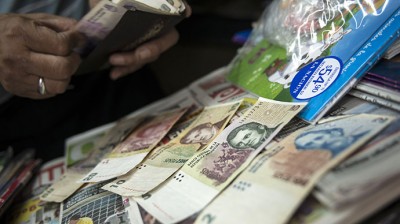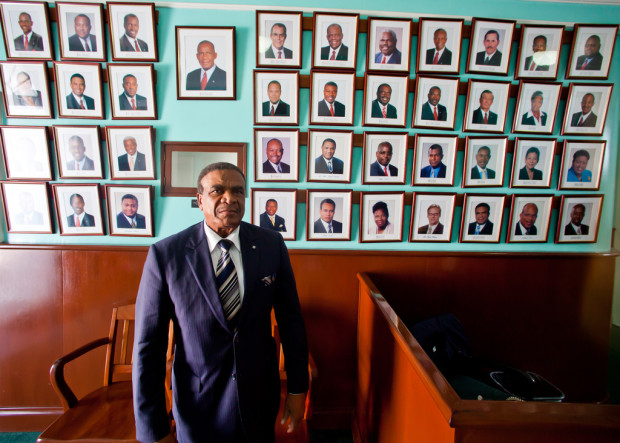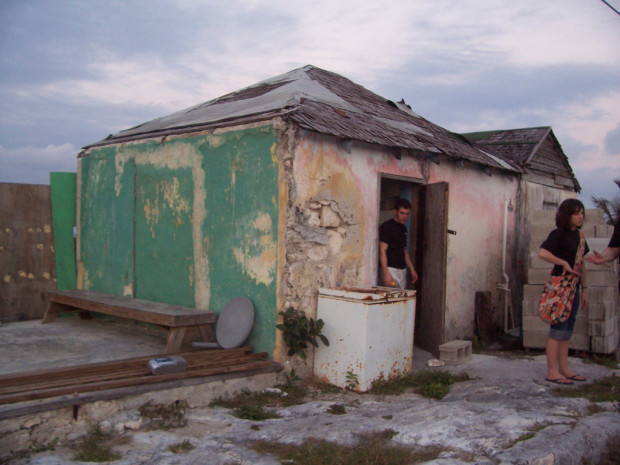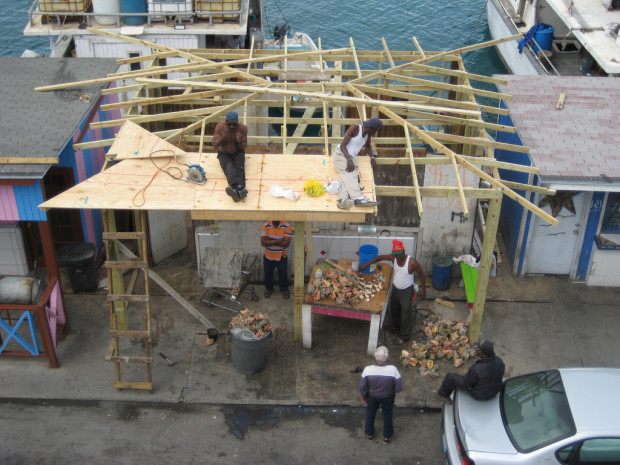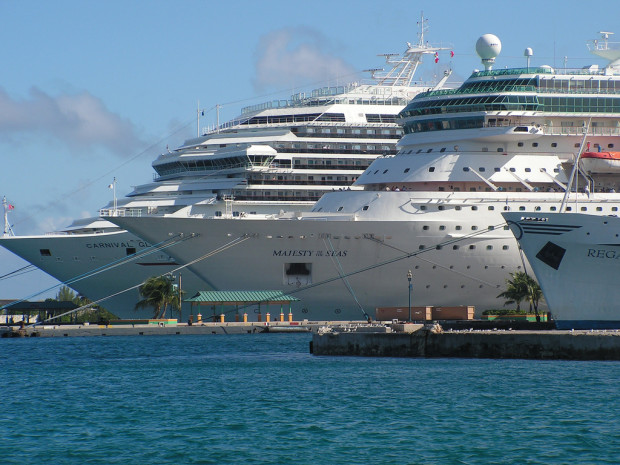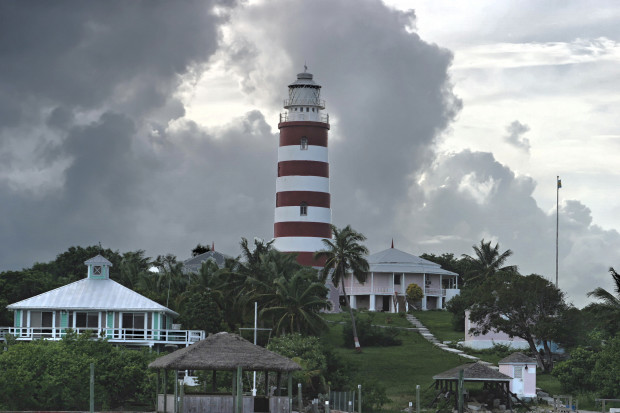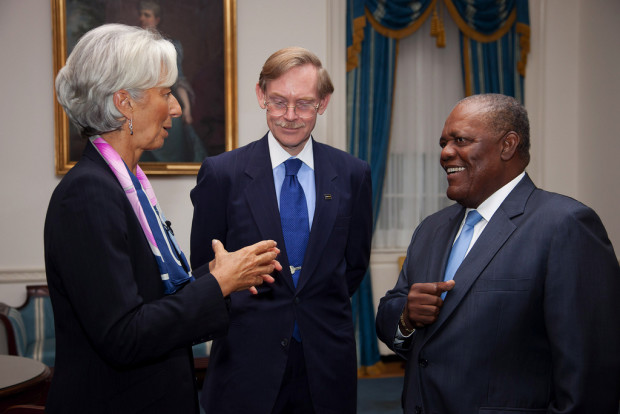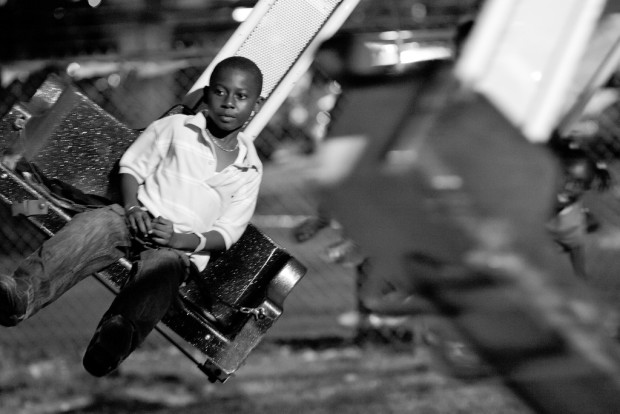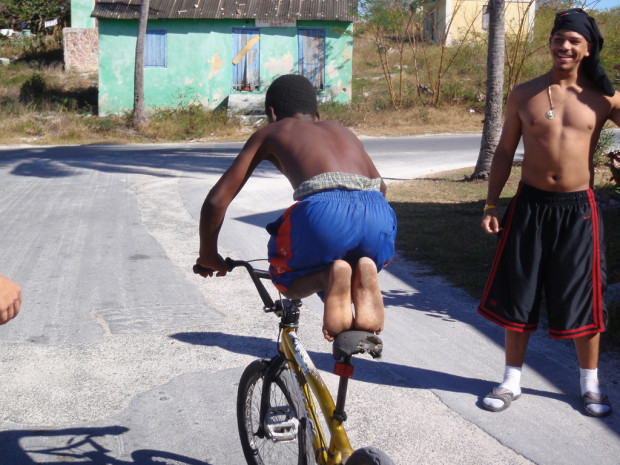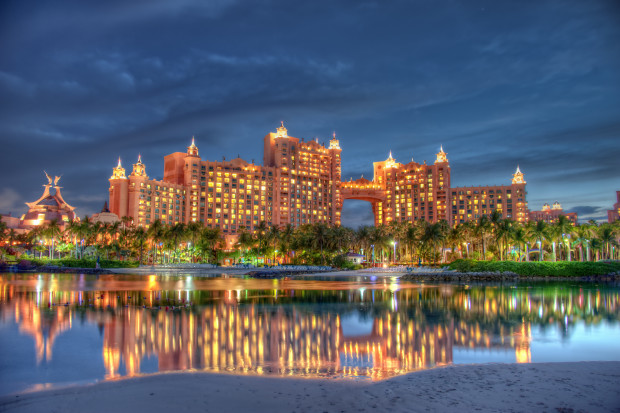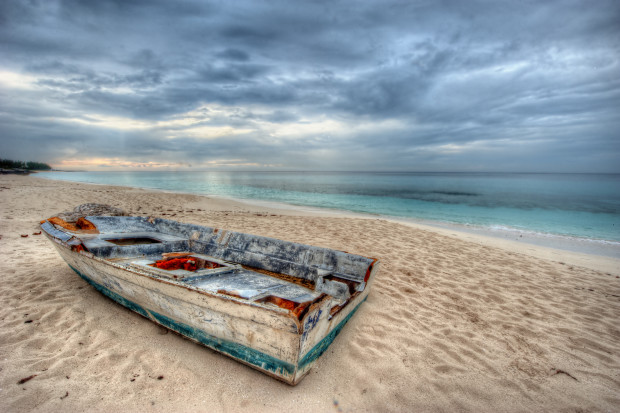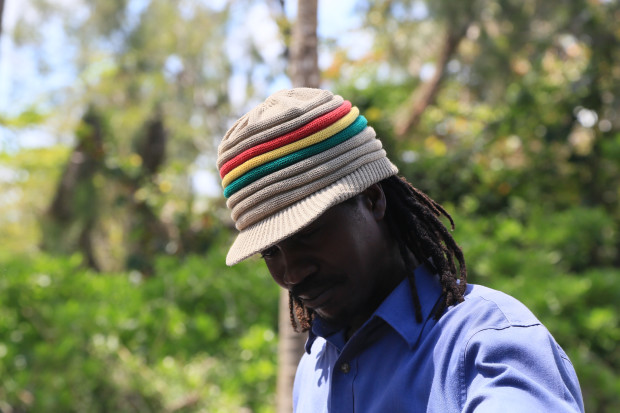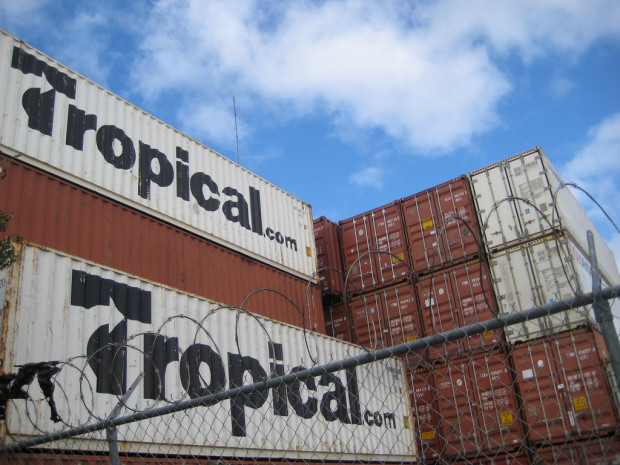Politicole: The Real Problem That Bahamians Have With Illegal Haitian Immigrants
By NICOLE BURROWS:
THE story of the Bahamian
national of Haitian parentage who lost his illegal home in a legal
demolition has made its way across every form of local media, perhaps
most of all social media, where people have dialogued on the verge of
meltdown.
As
the Anson Aly threat grew more newsworthy in the Bahamas, in Canada a
Canadian national shot and killed a Canadian soldier on duty and then
stormed into the Canadian parliament to see who else he could take out;
he was subsequently identified as a “terrorist” by the Canadian prime
minister.
The
terrorist’s motive was said to have been vengeance, having been a
suspected militant and repeatedly denied a passport for travel to the
Middle East. According to his mother, “he was mad and felt trapped so
the only way out was death.”
Some
Bahamians have called Aly a terrorist, which, per definition, is
someone who threatens people with the intention of intimidating a
society or government. Using this definition, the only real difference
between the Canadian terrorist and the angry Haitian Bahamian is the
fact that the latter wasn’t carrying a weapon when he made his threat.
Many
Bahamians are concerned that if we take for a joke now threats of this
nature, which approximate the definition of terrorist activity, who will
be able to take such threats seriously or be themselves taken seriously
later on? And where and when do you draw the line?
We’ve
habitually allowed the little things that ail our nation to fall
through the cracks, and we continue to do it, so we continue to suffer
many a social ill.
On
this issue, people are saying forgiveness is key. And, yes, I agree you
can and should forgive. But forgiveness doesn’t exempt a wrongdoer from
punishment. How many people in Fox Hill Prison are forgiven, yet they
remain incarcerated?
In
any other sensible, progressive country, our man Aly would have been
made to incur some consequence greater than an apology for his
threatening verbiage.
Only
in this jokey little country can we not recognise a problem while it’s
brewing. Maybe if we throw some political colours in the mix some people
who need to jump would jump faster.
Many
– including immigration minister Mitchell – are saying that Aly is just
one person, and we should not allow one person to cause us alarm. But,
to draw an analogy in the context of this subject, there was one person
at the start of our problem with illegal immigrants, too. Look how that
turned out.
I
think the general idea amongst a large number of Bahamians is that it
may be one person now, but who’s to say that the next “one person” won’t
push the envelope further the next time, now that it is already clear
how far threats can go unpunished and how silly we are in managing
national security issues with no real demonstration of authority?
Our
reality, whether you believe it, is that the one man, the one person,
is representing countless others with the same mindset. And if you put
Aly, or any other woman or man like him, in that situation again, or
another situation like it, you’ll see where their allegiance really
lies.
There
is a very large group of compassionate people – of which I confess I am
one – who understand the plight of immigrants to seek a better economic
life in a country they think is prosperous. Hell, if the Bahamas is
overrun by poor illegal immigrants or rich legal immigrants, many of us
might find ourselves on a voyage to some other country we also believe
to be prosperous, where we can seek a better quality of life all around.
But
since Aly threatened his fellow Bahamians in a heated moment, there’s
been a lot of dialogue about how unloving Bahamians are towards Haitians
or people of Haitian descent. I won’t say that some Bahamians aren’t
downright cruel, using “Haitian” as a derogatory word to describe
someone unattractive, dark-skinned, broad-nosed, poor, colourfully
dressed, with a high body odour. These are all hateful, hurtful things
that would cause anyone to feel unhuman or marginalised. But this is not
the real issue at hand.
The
issue in this Aly incident is the specific underlying, ongoing problem
Bahamians have with illegal Haitian immigrants and the inability or the
refusal of our government and the Haitian government to stem the illegal
influx of Haitian migrants to the Bahamas once and for all.
Minister
Mitchell has been keen to point out that there is “not one
international group” causing us problems with illegal immigration, but
the fact of the matter is we all know where the biggest problem lies
with respect to illegal immigration in the Bahamas – we can see it
everywhere we turn. Yet the discussion somehow has centred on the
statement that not only Haitians are a problem for us, but so are many
other illegal populations.
Some
have even likened the immigration plight of the Haitians in the Bahamas
to the Mexicans in America. They ask why Bahamians are prejudiced
against Haitians when we have other illegals to contend with. That we
do. But there are a few significant differences between them, and I
believe these differences are at the core of the anger and frustration
that Bahamians have towards illegal Haitian migrants to the Bahamas.
Having
lived in the Bahamas and America, and being exposed to both groups and
their respective ways of life, I find that the problem many Bahamians
have with illegal Haitian immigrants is a deep-seated frustration that
goes far beyond their desire for a better life; no one wants to deny
them that in principle. But illegal immigration of Haitians to the
Bahamas is really a multi-pronged problem, and it is very similar in
composition to the concerns US citizens have about illegal Mexican
immigrants. And they are all legitimate concerns.
In
my estimation, it comes down to three things, best explained by drawing
comparisons to other large migrating populations, particularly of
Chinese and Indian origin, as they are two of the largest in the world.
Within the Haitian and Mexican populations, there is often:
1) Violent aggression as a trademark of conflict management;
2) Low levels of education/ intellectual achievement prior to migration; and
3) Prolific reproductive lifestyles.
Firstly,
by and large, as compared to the Haitian and Mexican immigrant
populations, Chinese and Indian immigrants tend to have a higher degree
of education before they migrate. Many have credentials for marketable
skills beyond that of agricultural farmhands, and whereas the latter are
necessary, the former present a diversity that is needed to build a
country. Moreover, the (Indo) Asian immigrants have a better attitude
about building a nation, which shows in the quality of their
contribution to their host country.
They
don’t continue to profess that their country of birth is better, or
best, yet remain in the country they migrated to, taking everything they
can, investing in nothing and repatriating their income or sharing it
primarily within their own communities.
Secondly,
Chinese and Indian immigrants tend not to breed by the half-dozen; not
so for Haitian and Mexican immigrants. And this strikes a delicate and
particular chord for me and many of my compatriots, because, in our
younger years, we held off on reproducing to be responsible and to
ensure that we were financially equipped to care for our children in the
best way possible when we did have them, while the illegal Haitian
immigrants multiplied and are still now procreating left and right with
no care whatsoever for the burden it places on the Bahamian society.
Haitians
and Mexicans are largely comprised of people who follow the Catholic
religion, and they don’t readily subscribe to birth control. But when
has “more mouths to feed” ever helped anybody’s economic situation or
lifted them out of poverty? Clearly, there is something here that the
Catholic church has failed to teach its followers: if you’re already in
poverty, and you have little to no education to improve your
opportunities, it tends to lead to greater poverty when you multiply
inordinately.
Observing
the growing numbers of illegal Haitian immigrants and their offspring
in the Bahamas, it has become more than obvious that extreme/excessive
reproduction is their way of life, and it is more likely to occur
amongst the poorer Haitian and Mexican immigrant populations than the
poor Chinese or Indian immigrants.
Finally,
and without mincing words, Haitian and Mexican immigrants have a known
culture of violent aggression, as demonstrated by the types of crimes
they commit and the ways in which they commit them.
Chinese
and Indian immigrants can be very pushy, maybe because they compete to
survive in their very large populations, but their first idea to resolve
a dispute isn’t to pop off 10 rounds on someone, beat them to a pulp,
hack them to pieces, or tie them with a Colombian necktie. There’s a
degree of responsibility in Chinese and Indian culture that makes them
point their aggression at themselves.
I’m
reminded of my Haitian neighbour who, only a few months ago, killed a
baby bird on her porch with her slipper, when the little bird had only
lost its way from its nest. The woman didn’t kill it because she was
hungry and needed to eat it; she killed it just because it was there.
And then threw it into the street.
It’s
a simple, solitary incident, but it is still violent aggression for no
reason whatsoever. All these isolated occurrences taken together reveal a
strong tendency toward violence that lends itself to a colossal crime
problem. And we have the numbers to prove it.
The
reality is that extremely populated countries of the world have people
who migrate to other nations in search of better lives for themselves
and their children.
The
countries they tend to migrate to are usually larger, developed
countries, which have open job markets, the need for unskilled
labourers, wide expanses of land to accommodate increases in population,
and education and healthcare systems that are properly constructed and
fairly well-operated and funded.
But what, of these things, do we have in our little Bahamas?
Is it not in the Bahamian interest to defend what little we do have, and insist that it be developed in a sustainable way?
To
top it all off, when there is already a sizeable portion of the native
Bahamian population that exhibits violent aggression, low education and
high reproductivity, adding illegal immigrants of similar profiles only
makes matters worse, because the Bahamian disadvantaged become even more
marginalised in their own country.
But
rather than impose a penalty on and make an example of the offender who
threatens the little Bahamians have now, the authorities prefer to
admonish the law-abiding. Their answer is for the people who are “up in
arms” to “shoosh”. Be quiet. Stop talking about it. Don’t get upset.
Move on.
Well,
no. Because the path to being or becoming “ignorant” is to “ignore”,
and to make no statement or movement with respect to the problem at
hand.
And,
if we don’t mind believing the genius Einstein, whose many theories
about our world ring true to this day, “nothing happens until something
moves.”
October 27, 2014


